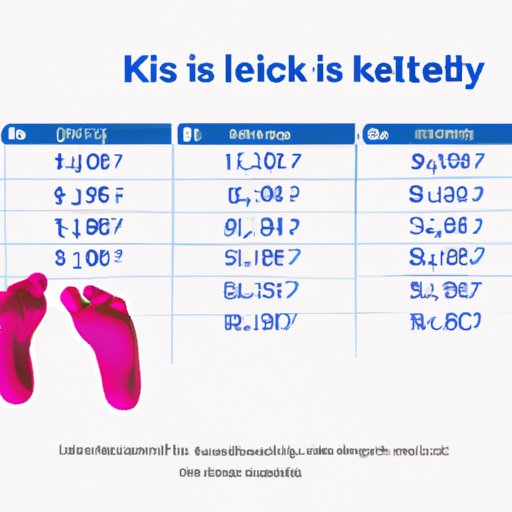
Introduction
Feeling your baby move inside your womb is one of the most magical and exciting experiences of pregnancy. The physical sensation of your baby’s kicks and movements is not only a sign of your baby’s growth and development but also provides you with an emotional connection to your little one. As a mom-to-be, it is essential to keep tabs on your baby’s movements, and understand when you should feel them. In this article, we’ll explore everything you need to know about feeling your baby’s kick, from when it starts to tips for monitoring fetal movements.
Feeling life: The magic behind a baby’s first kick
While being pregnant is a beautiful experience, a baby’s first kick is the most special moment that gives innumerable emotions spiraling inside expectant mothers. It’s an indication that your baby is growing and thriving inside you, and it’s often the first time many expectant parents truly feel connected to their child. Science tells us that as the fetus grows and develops, it gradually becomes strong enough to make sustained movements, usually starting between weeks 16 and 25 of pregnancy. The moment when you feel those gentle fluttering kicks inside your belly is a moment every expectant parent cherishes.
Timing is everything: Understanding fetal movement during pregnancy
The frequency and timing of fetal movement change over the course of pregnancy. While fetal movements can start as early as six weeks, you might not feel them until much later. In general, you can expect to feel your baby’s first movements between weeks 16 and 25. However, the timing can vary for each pregnancy. Later on, as your baby gets bigger, you may feel fewer movements but, they will be stronger. By week 32 to week 36, babies usually settle into a pattern of sleep and wakefulness that may vary from day to day.
Inside the womb: A guide to sensing your baby’s movements
The sensations of fetal movement can vary from subtle flutters and ticklish sensations to jabs and rolls. Mothers can feel different types of movement from their babies, including kicks, rolls, hiccups, and jabs. Monitoring your baby’s movements is important as it helps you notice changes and be aware if something is different from usual. To track your baby’s movements, lie down on your left side and focus on paying attention to your baby’s movements even if they go unnoticed. Drinking cold water or a sweetened beverage can help to stimulate activity. Moreover, if your baby’s movements decline unexpectedly, see your doctor immediately.
The anticipation of a baby’s first kick: What to expect
Feeling your baby’s first kick is one of the most magical and exciting moments of pregnancy, but the timing of when this will happen may vary from woman to woman. Some expectant mothers feel their first flutter as early as 16 weeks, while others might not feel anything until closer to week 25. It’s important to remember that every pregnancy can be different. Information and education about fetal movements, however, can help you to understand what you can expect to experience. If you haven’t felt your baby move yet, don’t worry too much. Be patient and wait for your baby’s first movements.
The science behind feeling your baby move
As the fetus grows, it needs more space, and this is when movements become stronger and more easily felt. There are no concrete theories on why babies move around so much in the womb, but doctors and scientists believe it’s a way of strengthening and developing the muscles. It’s a positive sign of your baby’s growth and progress. The feeling of the kicking, dipping, and swishing sensations occurs when the nerves that detect movement send signals to your brain. Different factors, such as the baby’s position and the mother’s weight, can also affect how movement feels.
Tracking your baby’s progress through kicks: A guide for expectant mothers
Counting your baby’s movements is one of the most useful things you can do to monitor your baby’s health and development. Kick counting refers to counting and recording the number of times your baby moves. To do this, you can lie down on your side and count every movement you feel in an hour. Although every baby’s movements vary throughout the day, monitoring the patterns over time is what matters. If you notice a decrease in your baby’s movement, notify your doctor immediately.
Conclusion
Feeling your baby’s first movements is a beautiful experience that every expectant parent cherishes. By understanding your baby’s movements, you can notice when things are different and take the necessary steps to ensure your baby’s health and wellbeing. Remember to keep track of your baby’s kicking patterns, be patient, and trust your instincts.




